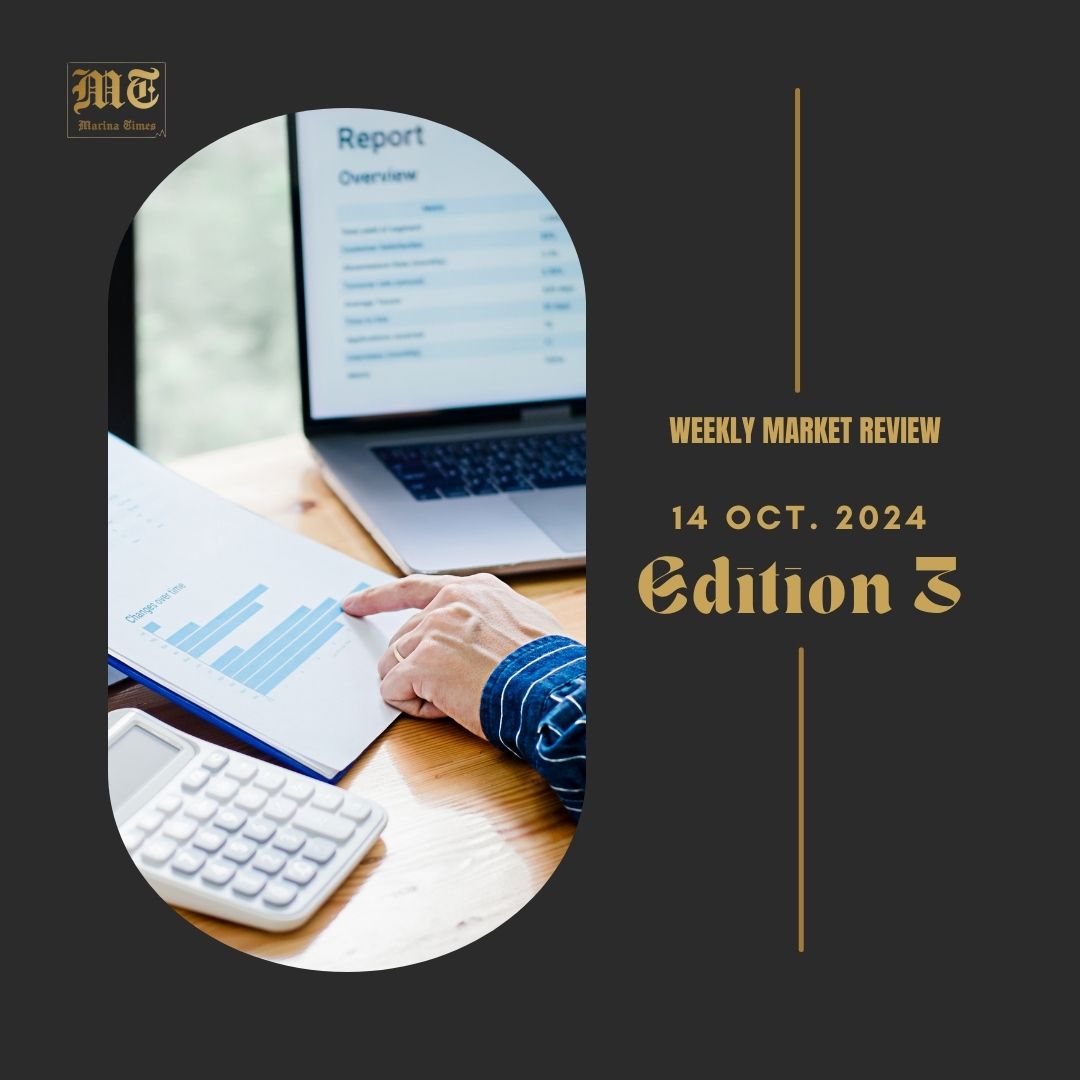

Notwithstanding efforts by the Federal Government, Debt Management Office (DMO), and Central Bank of Nigeria (CBN) geared towards boosting Foreign Direct Investments (FDIs), recent reports reveal a significant drop in FDIs to $29.83 million in the second quarter of 2024—an all-time low.
Over the last 16 months, Nigeria has secured $6.45 billion in loans from the World Bank. In fact, the World Bank has authorised at least 36 loan requests from the Federal Government, amounting to a total of $24.088 billion over the last five years. The extent and efficacy of these loans have been called to question across all spheres of financial discourse. Analysts across markets have started to wonder if the local currency borrowing needs of the DMO will be impacted positively by its broad array of tapped external funding sources to reduce the cost of local debt.
At the NAFEM Window, the Naira traded against the Dollar at a high of $/N1,675.00 on Friday, and at a low of $/N1,549.00 on Monday. In the same vein, it was observed that the currency pair closed at $/N1,641.27 on Friday
In the week under review, the Central Bank of Nigeria (CBN) auctioned one-year treasury bills worth N65.03 billion at 19.86%. Although this amount was twice the N30.75 billion initially offered, it fell short of the N177.10 billion sold in the previous month’s auction—for the same tenor.
This latest auction marked a decline in the stop rate for the one-year bills, decreasing from 20% to 19.86%. Conversely, the rates for the 91-day and 182-day treasury bills remained unchanged from the last auction, sitting at 17% and 17.5%, respectively.
In contrast to the one-year bills, demand for shorter-term instruments was tamed. The 91-day bill saw just a little over 50% of its N28.47 billion offer allotted. Meanwhile, the 182-day bill attracted even less interest, with only N3.91 billion sold of the N22.67 billion available, representing less than a quarter of the offered amount.
AUCTION DATE | 09-10-2024 | 09-10-2024 | 09-10-2024 |
ALLOTMENT DATE | 10-09-2024 | 10-09-2024 | 10-09-2024 |
MATURITY DATE | 09-01-2025 | 10-04-2025 | 09-10-2025 |
TENOR | 91-DAY | 182-DAY | 364-DAY |
OFFER (₦) | 28,474,098,000 | 22,674,139,000 | 30,756,393,000 |
SUBSCRIPTION (₦) | 16,271,144,000 | 5,323,913,000 | 251,683,435,000 |
ALLOTMENT (₦) | 12,959,619,000 | 3,914,138,000 | 65,030,873,000 |
STOP RATES (%) | 17.0000 | 17.5000 | 19.8640 |
PREVIOUS STOP RATES (%) | 17.0000 | 17.5000 | 20.0000 |
Similar to recent trends where OMO auctions closed at around 24%, the latest auction held on Friday mirrored the results of the previous auction held on the 27th of September, 2024, as a decrease by 2 basis points was observed. Notably, investor interest was robust, with bids exceeding N900 billion against a mere N300 billion total on offer. Given that liquidity was constrained for the most part of the week, analysts suggest that this strong demand likely stemmed from inflows from offshore investors.
The heightened interest indicates a shifting sentiment in the market, potentially influenced by external factors that have prompted foreign participation. Given that external players cannot provide Naira liquidity, their involvement suggests the introduction of Dollar inflows, which can help ease the tight liquidity conditions. As market conditions continue to evolve, this dynamic interplay between local and foreign investment will be crucial for understanding future trends, particularly when the OMO market is already aimed at reducing liquidity.
TENOR | AUCTION DATE | OFFER (₦’B) | BIDS (₦’B) | RANGE OF BIDS (%) | STOP RATES (%) | PREVIOUS STOP RATES (%) | TOTAL SALE (₦’B) |
95-DAY | 11-10-2024 | 25.00 | NIL | NIL | NIL | NIL | NIL |
179-DAY | 11-10-2024 | 25.00 | NIL | NIL | NIL | NIL | NIL |
361-DAY | 11-10-2024 | 250.00 | 908.23 | 24.2000 – 25.2000 | 24.3000 | 24,3200 | 905.23 |
According to the latest capital importation report from the National Bureau of Statistics (NBS), Nigeria’s FDIs for Q2 2024 have plummeted to $29.83 million, the lowest figure recorded since data became available in 2013. This represents a dramatic decline of over 60% compared to the $86.03 million recorded in the same quarter of 2023, and a staggering 74.97% drop from the $119.18 million reported in Q1 2024.
The FDI figures include both equity and other forms of capital, with equity investment accounting for the majority in Q2 2024. Year-on-year, equity investment has also decreased by 65.33% from $86.02 million in Q2 2023.
On September 26, 2024, the World Bank approved a package of $1.57 billion for Nigeria, aimed at enhancing human capital through improved health services for women, children, and adolescents. Going by a statement from the World Bank, this new financing comprises $500 million to tackle governance challenges that impede the delivery of education and healthcare (referred to as HOPE-GOV), $570 million for the Primary Healthcare Provision Strengthening Programme (HOPE-PHC), and another $500 million for the Sustainable Power and Irrigation for Nigeria Project (SPIN).
From all indications, at the moment, short-term investments and debt dominate Nigeria’s capital importation framework. Although these inflows can provide immediate liquidity to the economy, they lack the stability and growth potential associated with the physical assets or infrastructural needs for direct investments.
Based on recent trends in Nigeria’s FDI and borrowing activities, market participants, traders, and investors may adopt a cautious yet optimistic outlook. Nigeria’s foreign borrowing raises concerns regarding debt sustainability, making some investors wary of the potential implications on the economy, thereby leading to a more cautious approach towards investments. Nevertheless, there are sector-specific opportunities likely to arise from the new funding, particularly in healthcare, education, and infrastructure development, as these areas could benefit from government initiatives.
Going by the Q4 Bond Auction calendar, the Debt Management Office (DMO) appears to be strategically poised to reduce borrowing. In Q3 2024, the DMO had set a range of N80 billion to N120 billion for the bonds offered per auction. This figure has been adjusted for Q4 2024 to a narrower range of N80 billion to N100 billion, and with the 2033s off the calendar.
The reduction in the borrowing cap indicates a shift in the DMO’s strategy, possibly reflecting a desire to manage debt levels more prudently or respond to changing economic conditions. By lowering the amount on offer, the DMO could be aiming to align its borrowing with projected government revenue and expenditure, ensuring that debt remains sustainable while also maintaining investor confidence.
Furthermore, a smaller borrowing range could imply that the government is optimistic about other funding sources or is prioritising fiscal discipline. This could have implications for market dynamics, as investors will need to adjust their expectations and strategies based on the reduced supply of bonds in the market. Ultimately, the DMO’s approach will be closely monitored by market participants, as it is positioned to influence interest rates, liquidity, and overall investment sentiment across the bond market.
As Middle East tensions and China’s economic projections continue to influence market direction, inflation will remain a core focus across the globe. We expect crude prices to ease barring further direct confrontation between Israel and Iran.
We expect the DMO to adopt a very prudent stance to borrowing as we end the year with a view to managing its cost of borrowing. Although the CBN’s OMO emphasis may drive yields up, we think its impact will be on short-term funds. Mid- and long-term yields should stay relatively depressed except the CBN takes actions to hike further. We foresee a generally illiquid interbank money market for the foreseeable future as CBN works to reverse the adverse inflationary impacts of Ways and Means financing. Inflation is likely to come under severe pressure going by the excessive price jumps experienced in Nigeria.
We foresee fiscal authorities adopting an aggressive stance to concurrently discourage importation, encourage local production, and promote patronage of local products. This might be the most pragmatic way to reduce pressure on the currency and thus curb inflation (which in Nigeria’s case is largely due to importation).